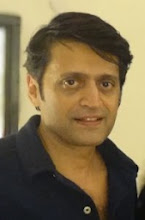Dec. 15, 2007
Recently the papers reported an unfortunate incident about a bright student who killed himself after being unable to follow lectures in English in a Mumbai College. A watchman’s son, the lad dreamt of becoming a doctor. The predicament that the bright student must have gone through reminded me of someone I have known closely for over forty years. Back in 1959, probably under a push to take more students from smaller towns and non-elite backgrounds, the Delhi School of Economics initiated a policy that enabled this man with a BA from Rajasthan University to also get admitted. One of his first classes was on Monetary Economics conducted by Professor K. N. Raj the legendary economist who apart from being one of the India’s top academics was also adviser to the Nehru government on India’s first five-year plan. During the course of the lecture, the professor also dictated out a variety of books that the students needed to read. At the end of the lecture, just as the professor was leaving, the student from Rajasthan, notebook in hand, reluctantly approached the professor. “Sir can you suggest any Keynesian Economics books in Hindi?” “What?” Professor Raj retorted, “you can’t follow English? Where have you come from?” “Sir, I have done my BA in Hindi medium from Jaipur,” the student reasoned. “Well, it’s better you go back because there are no references in Hindi that I can give.”
The student felt miserable. His mother was blind and his father, a farmer with a small land holding in one of the driest and least developed parts of India, discouraged him from studying beyond high school. The student left the job of a shepherd assigned by his father and ran away from home to study further on his own. A bright student, he had supported himself in his BA course in Jaipur by giving tuitions not only to school children but even his college mates. He also did various odd jobs on the side such as working as a tourist guide and even a police informer!
Delhi of the 1950s did not offer any quick fix books or crash courses to learn English but the student was determined not one to give up and go back. So for the whole of next year he started his morning with The Statesman and the Cambridge dictionary. Whenever stuck, he would open the dictionary, find the word, try to memorize its meaning and practice its pronunciation. As was likely, he could learn words, their meaning and correct usage but would often mispronounce them and be embarrassed by classmates. Yet, he managed on his own. It took him an extra year, but he completed his Masters, albeit in second class.
The persistent nature remained unchanged. He then pursued a career as an agriculture economist. His personal background in dry land agriculture provided an understanding that was unavailable in books. His research on the Rajasthan famine of 1963-66 and how people coped with it, was the first of its kind and was used by, among others, Prof. Amartya Sen in his path breaking work on understanding hunger and poverty. Over the next four decades, the young economist worked with different institutions within and outside India and moved from deserts to mountains, agriculture to sustainable development and environment. In 2001, he was chosen a fellow of the prestigious World Academy of Art and Science. Later the young, now old, scientist was also chosen President of the Indian Society of Ecological Economics.
Reading this, one may wonder how I know so much about this man. Many years back I had once come across that dog-eared copy of the Cambridge dictionary. The small newspaper clippings that fell out of it seemed puzzling at first. They carried no significant news items or hilarious anecdotes worth sharing. The person who pointed out the words on them, words as simple as “extraction” and “retraction,” as well as explained their importance in his growth path was my father Dr. N.S. Jodha.
